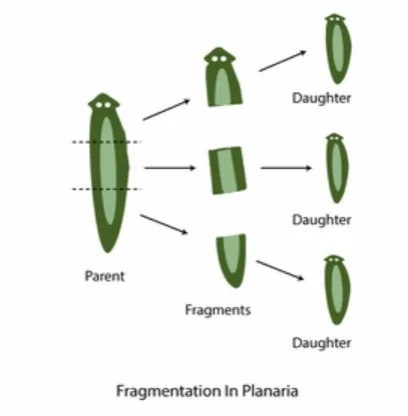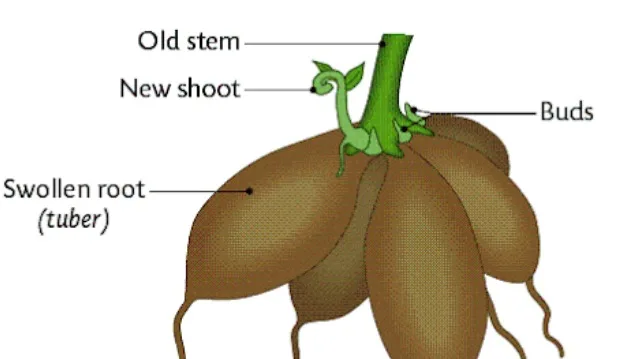
CBSE Class 12 Biology Notes Chapter 1: The natural process of combining chromosomes to create new offspring is called reproduction. This is a process carried out by pre-existing living entities to maintain the stability of life.
CBSE Class 12 Biology Notes Chapter 1 covers the process of plant and animal birth, which ensures the development of new species. Because all organisms must go through senescence and finally pass away at a specific age.These Class 12 Biology Chapter 1 notes explain important concepts in a simple way, helping students understand topics easily and prepare better for board exams.
Class 12 Biology Chapter 1: Reproduction in Organisms – Overview
In a biological process called reproduction , offspring are created that are exactly like their parents. The continuation of the species, generation after generation, depends on this event. Reproduction is commonly observed in all living organisms, ranging from single-celled organisms like amoeba to multicellular entities of the highest order, like humans. Depending on whether one or both parents participate, there are two methods of reproduction.CBSE Class 12 Biology Chapter-Wise Weightage 2023-24
Necessity of Reproduction
The process of reproduction is essential to the survival of a species and, as a result, maintains the correct balance between the many biotic components in the ecosystem. A life that is thriving today would end in the absence of reproduction. Because of the changes that result from the act of reproduction through the mixing of species (as shown in sexual reproduction), reproduction also aids in evolution.CBSE Class 12 Biology Previous Year Question Paper
Types of Reproduction
Asexual Reproduction
A new child is created by the involvement or participation of only single parents in this technique of reproduction. In this method, a single parent divides itself to replicate its kids, resulting in created offspring that are not only identical but also exact replicas of their parent. The different types of asexual reproduction are as follows.
The different types of asexual reproduction are as follows.
- Budding
- Fragmentation
- Binary fission
- Vegetative propagation
Vegetative Propagation
Through this kind of process, new plants can be produced without the need for the creation of seeds or spores, or other sexual structures. Plants are propagated using a variety of vegetative elements, including the rhizome, sucker, tuber, bulb, etc. This just needs one parent and does not involve the fusing of the male and female gametes. These are categorised as artificial and natural.
Plants are propagated using a variety of vegetative elements, including the rhizome, sucker, tuber, bulb, etc. This just needs one parent and does not involve the fusing of the male and female gametes. These are categorised as artificial and natural.
Significance of Vegetative Reproduction
- When it comes to reproducing plants, vegetative reproduction is the best option for maintaining parental traits.
- It works best for plants with low levels of sexual efficiency, tiny seeds, extended dormancy periods, low seed viability, etc. This strategy also makes it easy to multiply them.
- Getting plants free of diseases can be accomplished through vegetative propagation.
- The necessary traits can be combined from two types by grafting.
Examples of asexually reproducing organisms:
Asexual reproduction is typical in:- Creatures with only one cell, including bacteria, hydras, amoeba, yeast cells, etc. While yeast cells and amoeba multiply by budding, hydras and bacteria reproduce via binary fission.
- Some plant species reproduce by vegetative propagation, such as potatoes, ginger, sugarcane, agave, bryophyllum, etc.
- A few animal species use fragmentation in their reproduction, such as black worms and starfish.
Advantages of Asexual Reproduction:
- Since it is done by one person, locating a partner is not necessary.
- When compared to sexual reproduction, the procedure is quicker.
- Comparatively, less effort is expended.
- The fact that there is just one person involved makes the entire procedure less difficult.
- Can occur in a variety of settings.
Sexual Reproduction
When two parents of the opposite sex participate in this technique of reproduction, a new offspring is created. All multicellular species, such as birds, reptiles, dogs, cats, cattle, elephants, etc., reproduce in this way. A series of events make up the entire process of sexual reproduction, which includes:- Pre-fertilization
- Fertilization
- Post-fertilization
Fertilization
Syngamy is the fusion of both gametes, or male and female. A diploid zygote is produced in this. We call this process "fertilisation." The majority of fish, amphibians, and algae engage in syngamy outside of their bodies. We refer to this kind of fusing of gametes as external fertilisation. This is observed in frogs and bony fish, as they generate a great deal of offspring. exceedingly susceptible to predators, endangering their ability to survive. In plants (such as mosses, fungi, and pteridophytes), as well as in reptiles, birds, and mammals, syngamy takes place within the body of the organism. The procedure is hence known as internal fertilisation. When the mobile male gametes arrive at the egg, they fuse with it inside the female's body. Pollen tubes carry the immobile male gametes from seed plants to the female gametes.Advantages of Sexual Reproduction:
- A new child is produced when two parents participate, resulting in the mixing of genes.
- Offspring that are genetically similar are generated.
- Evolutionary advances can be attributed to the increased odds of survival that come with species variation.
CBSE Class 12 Biology Chapter 1 Notes PDF Download
Students can learn about the various forms of reproduction by using Our class 12 Biology Reproduction in Organism Revision notes. These notes have been written clearly to assist young students in achieving excellent results. Here we have provided CBSE Class 12 Biology Notes Chapter 1 pdf to help students in their examination.
CBSE Class 12 Biology Notes Chapter 1 PDF
Short Notes of Biology Class 12 Chapter 1
Here’s a quick summary of short notes for Reproduction in Organisms:
-
Reproduction ensures the continuity of species.
-
Asexual reproduction: single parent, no gamete fusion (e.g., binary fission, budding).
-
Sexual reproduction: involves male and female gametes, leads to genetic variation.
-
Reproductive phases: juvenile, reproductive, and senescent stages.
-
Events in sexual reproduction: pre-fertilization, fertilization, and post-fertilization.
These short notes help you revise fast before your board exams.
Related Links -
| CBSE Class 12 Biology Notes Chapter 2 |
| CBSE Class 12 Biology Notes Chapter 5 |
| CBSE Class 12 Biology Notes Chapter 7 |
| CBSE Class 12 Biology Notes Chapter 9 |
| CBSE Class 12 Biology Notes Chapter 3 |